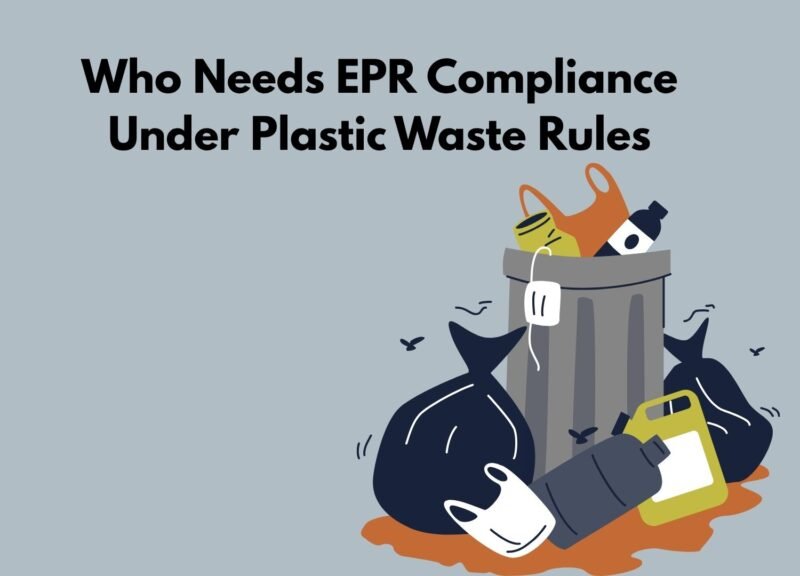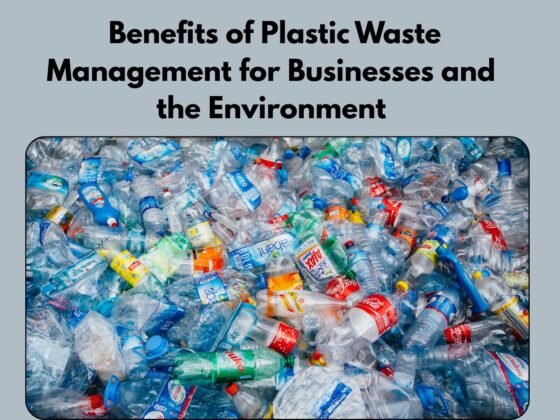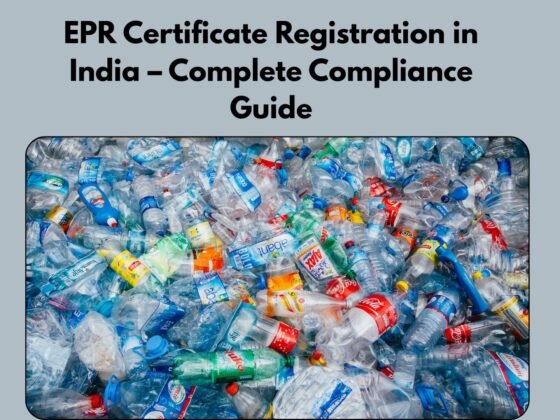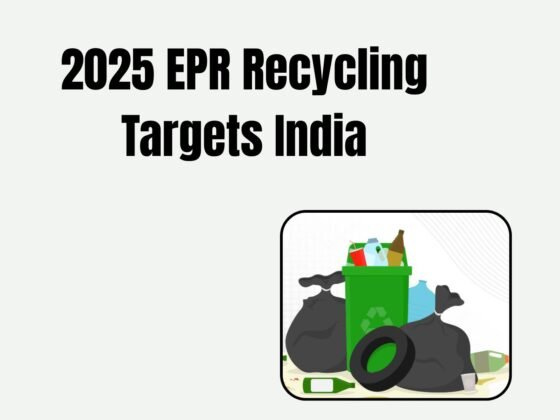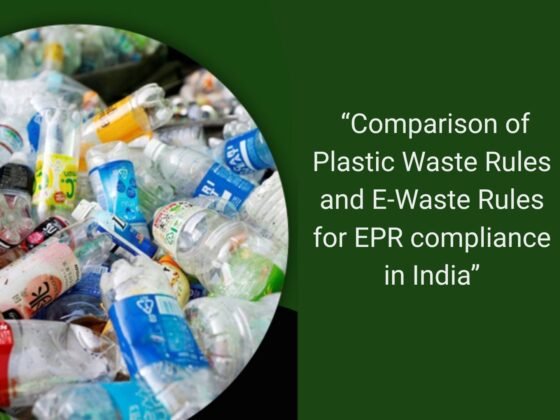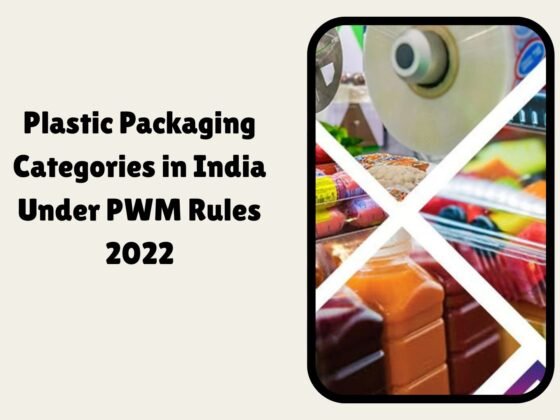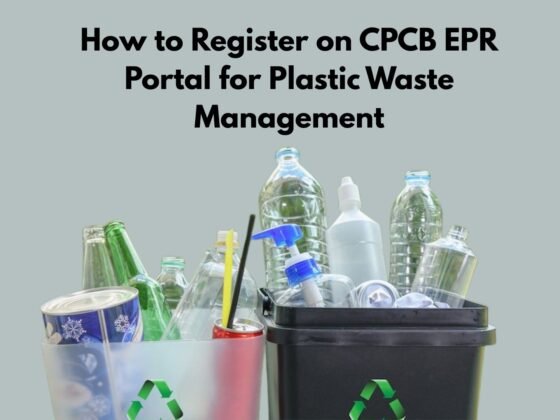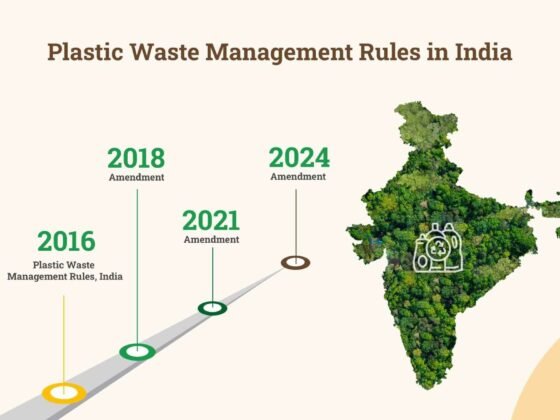Understanding legal responsibility before penalties start hitting businesses – EPR today is not an option; it is a legal mandate for survival. Who Needs EPR Compliance Under Plastic Waste Rules?
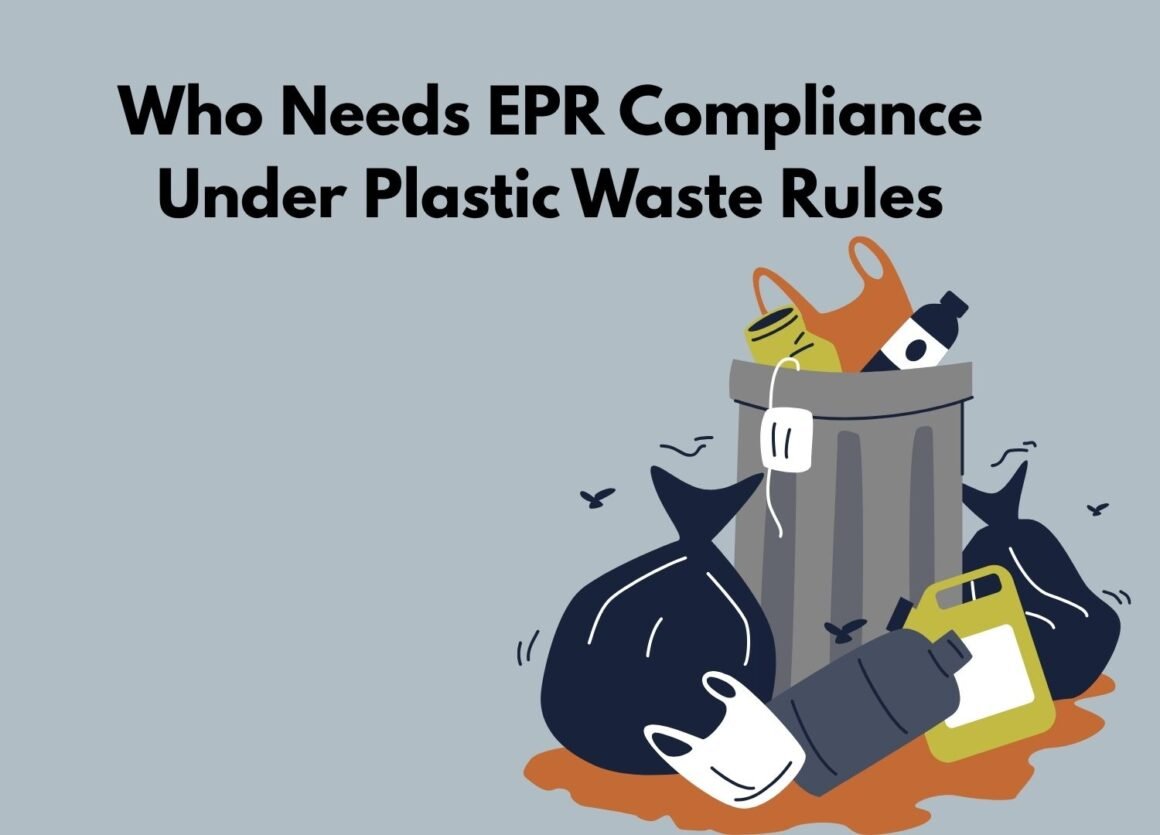
Extended Producer Responsibility (EPR) is one of the most crucial compliance requirements introduced under India’s Plastic Waste Management (PWM) Rules 2016, amended in 2018, 2021, and 2022. With rising plastic pollution and growing environmental regulations, the Central Pollution Control Board (CPCB) has mandated EPR registration and compliance for businesses dealing with plastic packaging. But who exactly needs EPR compliance under the Plastic Waste Rules? This detailed guide explains everything you need to know.
Who Needs EPR Compliance Under Plastic Waste Rules?
Extended Producer Responsibility (EPR) makes businesses responsible for the management of plastic packaging waste generated from their products. It ensures that companies take financial and operational responsibility for collecting, recycling, or disposing of plastic waste in an environmentally safe manner.
Under the PWM Rules 2022, no business dealing with plastic packaging can operate in India without obtaining EPR Registration from CPCB.
Who Needs EPR Compliance?
According to Rule 9 of the Plastic Waste Management Rules, the following entities must obtain EPR Registration on the CPCB EPR Portal:
Producers of Plastic Packaging
Businesses involved in manufacturing plastic packaging material fall under this category.
Examples include:
- Manufacturers of plastic carry bags
- PET bottle manufacturers
- Plastic film, packaging roll, and laminated pouch manufacturers
Why they need EPR: They are responsible for introducing plastic material into the market and must ensure its collection and recycling.
Importers of Plastic or Packaged Products
Any business importing plastic packaging or products packed in plastic into India must register for EPR.
Examples include:
- Importers of electronics with plastic casing
- Importers of cosmetics or food products in plastic packaging
- Importers of toys or household items wrapped in plastic
Why they need EPR: Imported packaging contributes to domestic waste, and importers must take responsibility for managing this waste.
Brand Owners
A Brand Owner (BO) is any company selling products under a registered brand name using plastic packaging, whether or not they manufacture it.
Examples include:
- FMCG companies like Nestle, HUL, or Dabur
- Beverage brands using PET bottles
- E-commerce platforms like Flipkart and Amazon (due to packaging use)
- Startups selling products on marketplaces under their brand name
Why they need EPR: They are responsible for post-consumer plastic packaging waste generated from their branded products.
Plastic Waste Processors (PWPs)
Plastic Waste Processors include:
- Recyclers
- Co-processors in cement kilns
- Waste-to-energy plants
- Plastic waste utilizers
Why they need EPR: Although they don’t generate waste, they must register to issue EPR recycling certificates to PIBOs (Producers, Importers, and Brand Owners).
Do Small Businesses Also Need EPR?
Yes. If a small business uses plastic packaging for commercial purposes, it must register. However, micro and small enterprises engaged in very small-scale plastic use may get certain relaxations, but they still need to register if they introduce plastic packaging into the market.
Examples of small businesses requiring EPR:
- Local packaged food brands
- Cosmetic startups
- Online D2C brands
- Packaging traders/importers
Who Does NOT Need EPR Registration?
Only the following may be exempt:
- Retailers using plastic bags purchased from registered manufacturers
- End consumers of plastic products
- Businesses not involved with any form of plastic packaging
If a business uses paper, aluminum, glass, or biodegradable packaging only—EPR is not required.
Categories of Plastic Covered Under EPR
EPR applies to all four categories of plastic packaging:
- Category I: Rigid plastic
- Category II: Flexible plastic (sachets, labels, wrappers)
- Category III: Multi-layered plastic (MLP)
- Category IV: Compostable plastic
Why EPR Compliance is Important
- Mandatory by law as per PWM Rules 2022
- Avoid penalties and business closure orders
- Build sustainable brand image
- Participate in India’s circular economy movement
Non-compliance can lead to:
- Environmental compensation fines
- Cancellation of business licenses
- Prosecution under the Environment Protection Act
Conclusion: Who Needs EPR Compliance Under Plastic Waste Rules
EPR Compliance is mandatory for Producers, Importers, Brand Owners (PIBOs), and Plastic Waste Processors operating in India. Whether you are a multinational corporation or a small D2C brand selling products in plastic packaging, you must register with CPCB and meet annual recycling targets.
Plastic Waste Management is not just a legal obligation but an opportunity for responsible business growth and environmental sustainability.
FOR MORE BLOGS – beyondthepunchlines.com

 Add to favorites
Add to favorites
